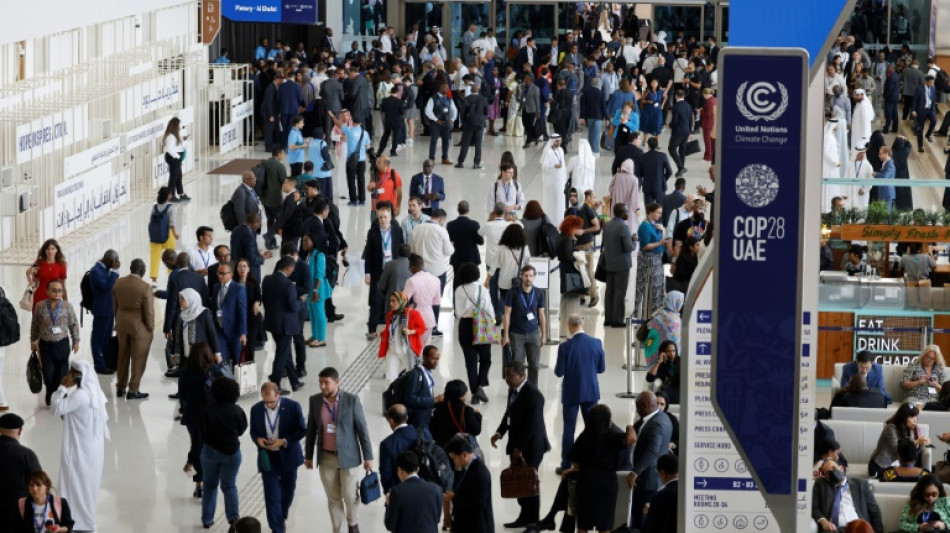
CMSC
-0.0300

COP28 in Dubai is the biggest UN climate summit ever. But the victims of its success are the thousands of delegates, observers and lobbyists who have to wait in long winding queues every day at the entry to the giant site on the edge of the desert.
Even five days in, delegates are still running from the metro to try to lessen the wait at the security gate.
A staggering 88,000 people are accredited to COP28, with another 400,000 registered to visit the "green zone" around it in the old Dubai 2020 Expo site.
The worst was the weekend, when more than 100 world leaders flew into the United Arab Emirates with their entourages to add even more to a crowded programme.
It "was horrible yesterday", said Natalia Cauvi, a member of the Peruvian delegation. "You arrive at the venue" -- where the future of the planet is being negotiated -- "very tired", she complained.
Ecuadorian Johnson Cerda of Conservation International, a veteran of 21 COPs, was equally frustrated. "We missed one meeting in the morning."
- 'It's too big' -
"It's too big, there's too much competing information, it's like Disneyland," said another delegate called Kirsten who was racing to be on time for a meeting.
The good thing, however, is that there are more NGOs and observers than ever. UN Climate has accredited 600 new organisations since last year.
"We started with 50, today here we have 400 indigenous representatives in this COP," said Cerda.
"We are key stakeholders, we bring our knowledge," he insisted.
Dan Bondi, another COP veteran and a member of the UAE delegation, sang the praises of the organisational skills of the Emirati hosts. "We thought 25,000 was a lot of people in Copenhagen in 2009. Again last year at Sharm El-Sheikh we thought 50,000 was a lot."
Bondi was too diplomatic to say, but even water was sometimes scarce at the Egyptian resort. No such problems in Dubai -- and there's plenty of coffee, even if it costs 20 dirhams (five euros, $5.45) a cup.
- 'It was more intimate' -
At the last count on Sunday evening, more than 110,000 badges have been issued for the "blue zone" run by the UN where the actual talks take place, including more than 23,000 technical, security and other event staff.
Around half of those people were physically on site on Sunday afternoon, the UN's unflappable media coordinator Alexander Saier pointed out to AFP early Monday.
Saier said there are a few reasons for COP's enormous expansion. "There has never been such interest" in the climate crisis; Dubai is well linked and its 2020 Expo site is big enough to take the crowds.
While there are quotas for NGOs, the media and professional organisations, the real reason for COP's supersizing is the national delegations. They account for more than 50,000 people this year -- 61 percent of the 88,445 total.
Many have more than 500 people -- with more than 1,000 sent by China and Nigeria -- and 3,000 from Brazil. But the Emirati delegation tops even that at 4,000-strong.
"It used to be so much more intimate," said Saier, with more than a little nostalgia for his first COP in the quiet German town of Bonn in 1999.
"The bubble was a lot smaller."
C.Akbar--DT